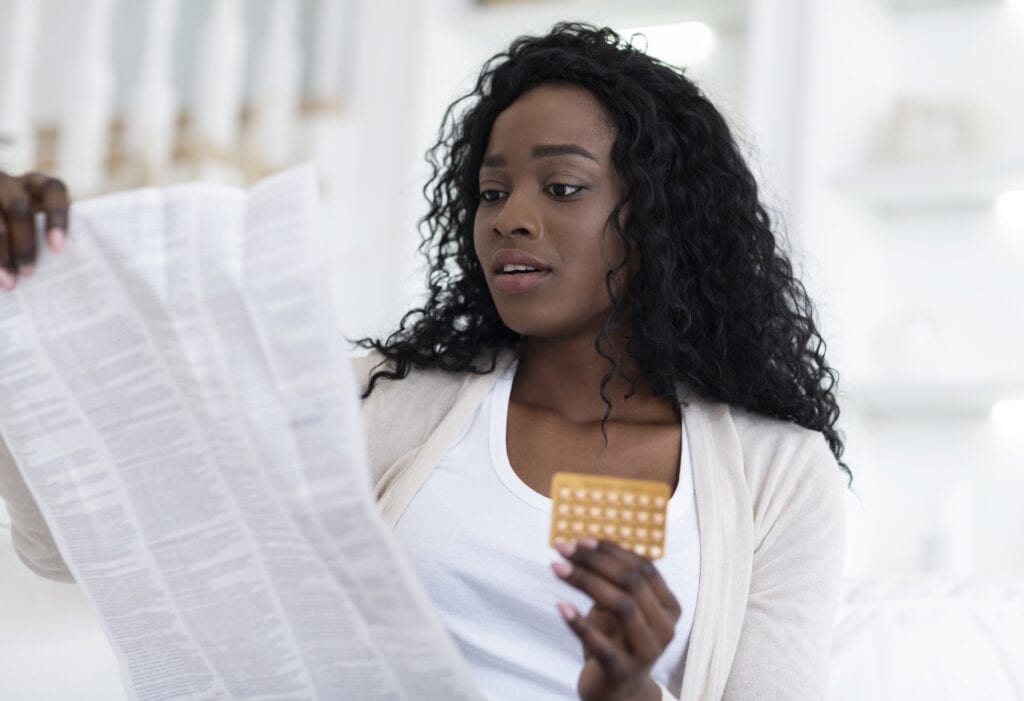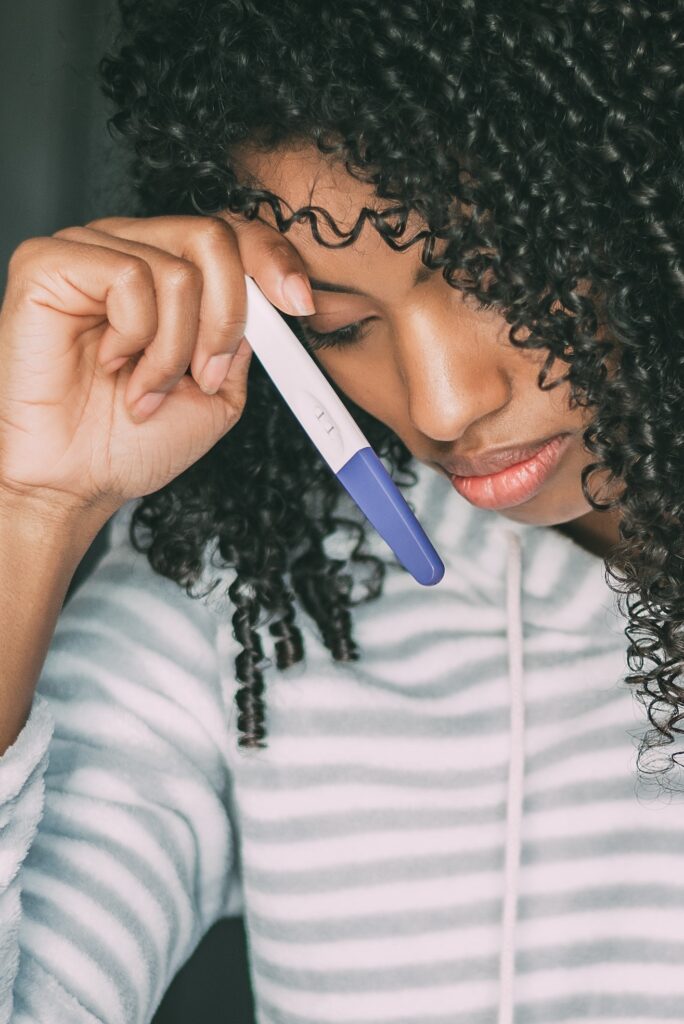Teenager’s Corner
Teens & Pregnancy
Did you know:
- 3 in 10 teen girls will get pregnant before age 20
- More than half of teen moms drop out of high school, less than 2% graduate college
- 8 in 10 teen dads don’t marry their baby’s mother
- 50% of teens had not considered how pregnancy would affect their lives before they got pregnant.
Being a teen can be stressful and adding pregnancy into the mix makes life extra complicated. You learn about teen pregnancy and sexual responsibility in school, from your parents, and on tv — and you learn that it’s not a good idea to get pregnant before you’re ready.
As a teen, it’s important to have a plan. Are you ready to have sex or are you going to wait? If you choose to have sex, do you know how to do it safely? Here are some things to consider:
- You can delay sex until you’re older, this is called abstinence. Not having sex is the only 100% effective method of preventing pregnancy and STIs or STDs.
- If you choose to have sex, you need to look at your options for protection – protection from pregnancy, STDs and STIs. See below for Prevention information.
You are the only person that can decided whether you are ready to have sex or not. But once you do decide for yourself, it’s important to talk about it with your partner. Knowing the facts and being sure of your decision will make the conversation easier and less uncomfortable. You can even talk it over with a friend, parent, or doctor first.
If you’re already a teen parent it’s also important to have a plan. You are traveling down a difficult and scary road. Just remember that you’re not alone. The Healthy Start Coalition of Miami-Dade offers a variety of services to help. If we can’t help you, then we’ll try to get you in touch with someone who can.
Am I Pregnant?
Think you might be pregnant, but aren’t certain? If you are pregnant, your body will show signs and symptoms of pregnancy, like:
- Missed period
- Frequent urination
- Spotting
- Nausea and/or vomiting
- Sore or enlarged breasts
- Fatigue
- Weight gain
- Cravings
- Sensitivity to smells
- Headaches
- Backaches
If you have three or more symptoms then you may be pregnant and should take a pregnancy test. You can take an at-home pregnancy test or go to a medical facility to take a pregnancy test. At-home pregnancy tests are 99% accurate when used correctly and can be purchased at most drug stores or grocery stores. You will urinate on a small plastic stick. If pregnancy hormones are detected, you’ll see a positive which means that you are pregnant. Pregnancy tests at a medical facility will be either a urine test, like an at-home test, or a blood test.
To get a pregnancy test at a health center near you, visit this page.
When you confirm that you are pregnant, you will probably experience a variety of feelings like uncertainty, excitement, confusion, and fear. Now that you are facing the reality of becoming a teen parent, you need to prepare yourself emotionally, physically, and financially. Knowing all of the facts will make you feel better and help you to have a healthier pregnancy. An unplanned pregnancy will change your life as you know it. Now that you are pregnant, you will need to:
- Start seeing a doctor for prenatal care—don’t put this off, the sooner the better
- Eat certain foods and avoid others (visit our page on healthy eating)
- Do not drink alcohol, smoke, or do drugs
- Take prenatal vitamins and get plenty of rest
- Take good care of yourself physically and emotionally
- Start planning a stable future for you and your baby
- Prepare a safe home for you and your baby
- Look at options for child care so you can continue school.
At this point, you know how pregnancy is caused– by having unprotected sex. After you have your baby, it is important not to get pregnant again for another 2 years. This allows your body to recover and regain strength. To learn how to avoid getting pregnant again, see our Prevention Information below.
Am I Pregnant?
Are you sexually active or thinking about having sex, but aren’t sure what prevention methods are available? Here are some common contraceptives you may want to consider, but remember, abstinence is the ONLY 100% sure fire way to avoid getting pregnant or contracting an STD.
Male Condom
The only method that protects against both pregnancy and STDs and STIs
Details: In order to be effective, the condom must be worn before you start having sex and must be kept on the entire time. The condom slips over the guy’s penis to prevent pregnancy and STIs by keeping his sperm inside the condom and not in the girl’s vagina. Latex condoms are most recommended. If you’re allergic to latex, polyurethane condoms are recommended. Stay away from sheepskin condoms as they contain dozens of tiny little holes that make the condom more likely to break and cause the sperm to leak out.
To find a business or organization near you that distributes condoms for free, simple search here.
Effectiveness: 82%
Pros: Condoms are relatively easy to use, but it’s very important to follow the directions carefully. You can easily purchase condoms inexpensively at your local grocery or drug store and do not need a doctor’s prescription.
Cons: If you are allergic to spermicide or latex, then you’ll want to avoid those types of condoms. The condom will be far less effective or completely ineffective if not used correctly.

Femele Condom
A pouch the girl inserts into her vagina that collects the guy’s sperm and protects against most STIs
Details: Female condoms work similarly to male condoms but instead of being snug around the guy’s penis, it fits loosely inside the girl’s vagina. It protects both partners from STIs including HIV and keeps the guy’s sperm contained to prevent pregnancy. Female condoms are not the easiest method and they must be used correctly in order to be effective.
Effectiveness: 79%
Pros: You do not need a prescription from a doctor to get female condoms. They can be found at most drug stores. This is a good option for people allergic to latex as they are made out of plastic or synthetic rubber. This is also a good option for a girl if the guy refuses to wear a male condom.
Cons: The female condom looks awkward, like a floppy, clear elephant trunk. Some women find it mildly uncomfortable to insert. It’s very important that it’s used correctly, otherwise it won’t be effective.

The Pill
A pill the girl takes daily, some even have positive side effects besides pregnancy prevention
Details: Also known as ‘oral contraception’ (because the pill is taken orally), the pill must be taken every day at the same time in order to be effective. There are hundreds of different kinds of birth control pills but they all work similarly in that they release hormones that keep the ovaries from releasing eggs. The hormones also thicken the cervical mucus to prevent sperm from getting near the egg. In most cases, the girl takes a pill everyday for three weeks and on the fourth week she takes a placebo (also known as a sugar pill) and has her period. The pill is only effective in preventing pregnancy, but has no effect for preventing STDs or STIs.
Effectiveness: 91%
Pros: Some girls experience positive side effects like clearer skin, weight loss, and boosted mood. The pill also regulates your period so you can know exactly when to expect it. The pill is easy to use and a private method of birth control.
Cons: Because the pill is hormonal, you will need to go to your doctor to write you a prescription then you can get the prescription refilled at your pharmacy. Some girls see negative side effects with certain types of the pill, such as sore breasts, mood swings, skin break-outs, and weight gain. Because the pill does not protect against STDs or STIs, it’s a good idea to double up with a secondary contraceptive like the male condom or female condom. Some girls have trouble remembering to take their pill everyday at the same time. If the pill is not taken correctly, then it won’t be effective. If this is the case for you, use Bedsider’s Reminder tool at http://bedsider.org/reminders/new.

The Ring
Flexible ring inserted into the vagina that works like the pill, providing pregnancy prevention for a month
Details: Small and flexible, the ring is squeezed and inserted into the vagina. The girl keeps the ring in for 3 weeks while it releases a steady stream of hormones that prevent the ovaries from releasing eggs. On the fourth week she takes the ring out and has her period. Inserting the ring is similar to inserting a tampon, but if you’re uncomfortable with putting your fingers inside yourself then this is not a good option for you. This is a good option for girls that would have trouble remembering to take the pill every day. You only need to remember to put it in each month and take it out three weeks later. Usually the pharmacy will give you three to four months worth of protection (3-4 rings) and they need to be store in the refrigerator. So, if it’s important to you to keep your birth control private, this might not be your most secretive option.
Effectiveness: 91%
Pros: The ring releases a low dose of hormones so there’s less chance of negative side effects. It’s a low maintenance option – just remember to put it in and take it out each month. Because it’s so easy, it’s less likely that you’ll do it incorrectly, improving your odds of effectiveness.
Cons: There is only one company that makes the ring, Nuva Ring. Without insurance, it can be a more expensive option. Because the ring is hormonal, you will need to go to your doctor to give you a prescription then you can get the prescription refilled at your pharmacy. Some girls see negative side effects, such as sore breasts, mood swings, skin break-outs, and weight gain. Because the ring does not protect against STDs or STIs, it’s a good idea to double up with a secondary contraceptive like the male condom or female condom.
The Patch
Works like the pill, is worn on the girl’s skin, and only needs to be changed monthly
Details: The patch (also called Ortho Evra) is a thin, beige, plastic sticker that stays on your skin for a week. It slowly releases hormones that prevent the ovaries from releasing an egg. The girl changes the patch three weeks in a row then takes it off for the fourth week when she has her period. It also causes the cervical mucus to get thick which prevents sperm from getting near the egg. This is a good option for girls who don’t want to have to worry about taking a pill every day, but it must be changed weekly. Because the patch only comes in one size – about 2 inches by 2 inches – it is only recommended for girls who weigh less than 198 pounds.
Effectiveness: 91%
Pros: The patch is easy to use and doesn’t require daily maintenance. It is very effective in regulating girl’s periods.
Cons: There is a weight restriction to remain conscientious of, 198 lbs. Because the patch is hormonal, you will need to go to your doctor to give you a prescription then you can get the prescription refilled at your pharmacy. Some girls see negative side effects, such as sore breasts, mood swings, skin break-outs, and weight gain. Because the patch does not protect against STDs or STIs, it’s a good idea to double up with a secondary contraceptive like the male condom or female condom.
The Shot
A shot of hormones for the girl that lasts three months
Details: The shot (aka Depo-Provera) contains progesterone – no estrogen — that prevents the ovaries from releasing eggs and creates a thick cervical mucus. The shot will provide effective birth control for three months, after three months you go to the doctor for another shot. If you can’t handle needles, this isn’t a good option for you.
Effectiveness: 94%
Pros: It’s virtually fool-proof — highly effective long-term coverage, no daily or weekly hassle, and completely private. Most girls who regularly received the shot noticed their periods get much lighter or even stop over time.
Cons: Because the nature of a shot, you will need to go to your doctor to have the shot administered – and you’ll need to go every three months. Some girls see negative side effects, such as sore breasts, mood swings, skin break-outs, changes in appetite, headaches and weight gain. Because the patch does not protect against STDs or STIs, it’s a good idea to double up with a secondary contraceptive like the male condom or female condom.
Diaphragm
A shallow cup inserted into the vagina that prevents sperm from entering the uterus; non-hormonal and effective immediately
Details: A diaphragm is a small dome-shaped silicone or latex cup that the girl inserts into her vagina before having sex. The diaphragm covers the opening of the cervix which prevents sperm from entering into the uterus. In order for it to be most effective, spermacide needs to be applied to the inside of the dome before inserting it into the vagina. It also needs to be positioned correctly. If you are uncomfortable inserting your fingers into your vagina, this is not a good option for you. A diaphragm is non-hormonal so it must be used every single time you have sex and it does not regulate your period. In fact, you can’t use the diaphragm while on your period. Your doctor will measure your cervix in order to fit you properly with a diaphragm. The diaphragm will come in a storage case that can be discretely kept at home or carried in your purse.
Effectiveness: 88%
Pros: Since a diaphragm is non-hormonal, you will never experience the negative side-effects that sometimes come with hormonal birth control. The diaphragm is also convenient since it is discrete and is immediately effective.
Cons: Though it is non-hormonal, you will still need to go to your doctor to get a diaphragm. This is not the birth control method for you if you or your partner is allergic to latex or spermicide. Because a diaphragm does not protect against STDs or STIs, it’s a good idea to double up with a secondary contraceptive like the male condom or female condom.
Spermicide
Non-hormonal and non-prescription substance that immobilizes sperm
Details: Spermicide comes in many different forms such as creams, foams, gels, films, and suppositories. The spermicide is inserted deep into your vagina. When sperm comes into contact with the chemicals in spermicide, the sperm is stopped from moving. Women who have a higher risk of HIV or who are with a partner who may have HIV should avoid this method because one of the chemicals in spermicide, Nonoxynol-9, causes changes in your natural vaginal chemical balance. This imbalance makes you more susceptible to HIV. It is also common from people to be allergic to spermicides. If you feel an irritation during or after use of spermicide, then you are likely allergic to it.
Effectiveness: 71%
Pros: Spermicide is readily available at most drug stores. Spermicide boosts the effectiveness of other contraceptive methods such as male or female condoms, diaphragm, cervical plug, the pill, the ring, the patch, etc.
Cons: The failure rate of spermicide is pretty high so it should always be used with another form of contraception – but it’s better than using nothing at all.
Emergency Contraception
For emergency use, not a regular birth control, to stop a pregnancy before it starts
Details: Emergency contraception (aka EC) if taken in time, can stop a pregnancy before it happens. This is not the abortion pill so it will not terminate an existing pregnancy. The sooner taken after unprotected sex, the more effective it will be but it can be taken up to 5 days after. There are three different options:
Ella: This one-pill formula stops your body from producing the hormones that your body needs to conceive. Unlike the other pill, the effectiveness does not decrease during the 5 days after unprotected sex. You will need a prescription from your doctor to get this pill, but there is no age restriction.
Plan B One-Step, Next Choice One Dose, Next Choice, and Levonorgestrel: Available at most drug stores and without a prescription, this pill form of EC works much like birth control but at a much higher dosage. It must be taken within 5 days and it’s effectiveness decreases during those 5 days. You must be 17 or older to purchase these pills.
Pros: All three methods reduce your risk of an unplanned pregnancy after unprotected sex.
Cons: All three options will disrupt your period and likely cause spotting. The insertion of Paragard IUD can be painful or uncomfortable and will disrupt your period for the following weeks while your body adjusts. Ella, Plan B One Step, Next Choice One Dose, Next Choice, and Levonorgestrel will likely cause nausea, cramping, sore breasts, and irregular bleeding.
IUD
Highly effective, private, long term birth control inserted into the uterus
Details: An IUD is a small T-shaped plastic piece that is inserted by your doctor into your uterus. It prevents the sperm from fertilizing the egg(s). Depending on the IUD, it can provide highly effective birth control for anywhere from 3 to 12 years.
Paragard
This is the most effective form of EC, but it must be administered by a doctor within 5 days of unprotected sex. Paragard is also a long lasting method of birth control. It can actually last up to 12 years. This method is not recommended for women who have not given birth yet.
This IUD is 100% non-hormonal so you won’t experience the side-effects of a hormonal birth control like the pill, the patch, the shot, etc. Paragard is made out of plastic and a small amount of safe copper. Though Paragard provides contraception for up to 12 years, it does not protect against STDs or STIs.
Mirena
Mirena provides pregnancy prevention for up to 5 years by releasing a synthetic hormone, progestin, that prevents sperm from reaching the cervix. Mirena is also effective for lightening your period flow and frequency.
Skyla
The smallest IUD available, Skyla is the only IUD approved for women who have not previously given birth. It releases progestin that prevents sperm from entering the cervix for up to 3 years.
Effectiveness: 99%
IUD — Pros and Cons
Pros: IUDs are a great form of birth control for people who don’t want to have to worry or think about birth control – no prescriptions, no packaging, and no daily, weekly or even monthly obligations. Aside from abstinence, it is the most effective form of birth control. For most women, IUDs will cause a lighter period flow and may even eliminate the period for months at a time. Most experts agree that IUDs are perfectly safe and you will be fertile again almost immediately after the IUD is removed.
Cons: Some women experienced pain and discomfort at the insertion of the IUD. Only a doctor can approve a candidate for an IUD and perform the insertion of the IUD. An IUD will almost certainly change the nature of your period. At first you’ll experience irregular bleeding but your body will eventually establish a cycle and you will likely have a lighter flow. For women who find comfort in a regular, consistent period, this might not be the best option. No IUD can protect you from STDs or STIs, so it is still important to use a secondary form of protection like and male or female condom.

Myths…BUSTED!

True or False?
There are hundreds of false claims about how NOT to get pregnant. Healthy Mothers, Healthy Babies wants to educate teens on the common myths associated with teen pregnancy and sexual activity. Check out these unbelievable falsities…how did you score?
Everyone’s doing it
Actually, less than half of high school students have had sex, 48% to be exact. You can’t believe everything that everyone tells you. Some people may talk about sex, but that doesn’t mean that they’re having sex.
It’s not cool to wait til you’re older to have sex
Waiting to have sex is one of the smartest things you can do. If you wait, you’re 100% safe from pregnancy and STDs. Anyway, most teens that have had sex say that they wish that they waited.
If you love someone, you should have sex with them
This couldn’t be farther from the truth. If a person loves you then they will respect your decision to wait. Sex tends to complicate relationships. If the relationship ends, then you will feel even more hurt. In fact, 8 out of 10 first time teen sexual relationships last 6 months or less and 25% are one-time occurrences. That’s not exactly the happily ever after you had in mind.
You can’t get pregnant the first time you have sex
FALSE! It does not matter how many times you’ve had sex, you can get pregnant. A girl gets pregnant when a guy’s sperm fertilizes her egg. The sperm and egg don’t care how many times you’ve had sex before. The only certain way to not get pregnant is by not having sex.
A girl can’t get pregnant when she’s on her period
This is a very common misconception. A girl can in fact get pregnant if she has sex while she’s on her period. The sperm released during sex lives in the vagina for several days. When her period is done and she ovulates then the sperm can fertilize the egg resulting in pregnancy.


Girls: “If I ___(fill in the blank)____ then I won’t get pregnant.”
- Douche – False. Douching with water, soapy water, soda pop, or anything else will NOT prevent you from getting pregnant. Sperm are swimmers and they travel up into the cervix where the douche can’t get to them. Douching is not effective for preventing pregnancy.
- Push hard on my stomach after se – False. Pushing on any body part after sex won’t make any difference whether you get pregnant or not. It will probably just hurt you. Your eggs and the sperm released during sex are microscopic and protected by your reproductive organs. Pushing on or hitting your stomach will NOT prevent you from getting pregnant.
- Jump up and down after sex – False. Sounds like a lot of work for nothing. There is nothing you can jump on for any amount of time that will prevent you from getting pregnant.
- Have sex in the water – False. Having sex and making waves in a pool, bath tub, hot tub, ocean, or any other water will not prevent you from getting pregnant. In fact, water will get pushed into your vagina and can cause irritation or infections.
- Have sex standing up or girl-on-top style – False. The position that you get-it-on in has no affect on your chances of getting pregnant. Upside down, standing up, laying down, in a car, in a bed – it doesn’t matter how you do it, you can get pregnant.
- Don’t have an orgasm – False. An orgasm is the physical and emotional sensation felt at the peak of a sexual experience. For a man, this is the point of ejaculation. For a woman, it is nothing more than a feeling. Having or not having an orgasm does not affect your chances of getting pregnant.
- My partner pulls out before he ejaculates – False. This method of preventing pregnancy is not effective. Before a guy has an orgasm and ejaculates he produces pre-ejaculatory fluid (aka pre-cum). This fluid contains sperm that can fertilize the egg and cause pregnancy.
There is no 100% effective form of birth control.
Abstinence, or waiting to have sex, is the only 100% effective protection from pregnancy and STDs. If you are not having sex then you cannot get pregnant.
Condoms can be reused.
Absolutely not! Condoms are only good for one use. Once you remove a condom from its wrapper you need to use it or lose it. After using a condom it should be thrown away immediately.
When you don’t have a condom, you can use plastic wrap.
Plastic wrap, baggies, etc are fine to use in the kitchen but never as a replacement for a condom. Condoms are specifically made to have a secure fit and are made from material that keeps the seminal fluid from getting into the vagina. Plastic wrap is made to cover your food. It doesn’t work for preventing pregnancy or STDs.
Birth control pills are effective as soon as you start taking them.
Birth control pills are a series of hormones that must be taken consistently over a full menstrual cycle (or one month) to be effective. The hormones need time to build up in your body to be effective. It’s also important to take the pill at the same time every single day and not skip days. If you just started taking the pill, then you can still get pregnant. You should use a back-up birth control like a condom.

Having “The Talk”

Talking about it.
Talking about sex, STDs, and intimate things can be downright uncomfortable and awkward – but it doesn’t have to be. Being more open and honest with your partner about how you feel will establish a stronger, happier relationship. It’s important to let each other know where you stand on issues relating to your sexuality and your boundaries.
Be bold, take charge.
Don’t wait for your partner to bring something up. You may find that he/she is relieved that you brought it up first. Nervousness is normal, but you won’t regret the conversation.
Have ‘the talk’ before things start heating up between you. Having the conversation after you’ve been together sexually may be too late. All it takes is ‘one time’ to get an STD or get pregnant. Once you feel that you’re ready to take the relationship to the next level, have the conversation. Don’t wait until it’s too late.
Be totally honest.
If you have an STD, tell your partner. It’s important to tell them before you have any sexual contact – including skin-to-skin contact, oral sex, anal sex, or vaginal sex. You and your partner can take steps to prevent sharing the STD. You may find it helpful to go to a local health center together where you can learn about proper protection.
Be in the know.
Knowledge is power. You and your partner should get tested so that you know if you have any STDs. Not all STDs show symptoms, so you can’t tell just by looking. Know what STDs are and how to protect yourself from getting them.
You should talk to you partner about things like:
- Sexual activity
- STD and STI Testing
- Use of STD protection and pregnancy prevention
- Being monogamous
Sexual activity
Ideally, you’ll have this conversation before you and your partner become sexually involved. You should communicate to your partner your sexual boundaries – how far you are comfortable going. If your partner doesn’t respect your wishes, then you should reconsider your relationship.
STD and STI Testing
If you haven’t been tested since your last sexual partner, then you should get tested. Ask your partner if you can go together to get tested. You can find a local health clinic here (link). You should also agree to a form of STD and STI protection, like wearing a condom or abstaining from all sexual activity. If one or both of you has an STD, don’t worry. You can use precaution and protection to prevent sharing the STD. It’s best to talk to a doctor about how to prevent sharing STDs with each other and to get immediate treatment for your STD.
Use of STD protection and pregnancy prevention
One of the most important conversations you can have with your partner is about STDs and pregnancy prevention. Is he willing to wear a condom? Is she on birth control? If he is not willing to wear a condom, is she willing to wear a female condom? Are you using a secondary birth control method, such as spermicide, the pill, or a diaphragm? If he is not willing to wear a condom then you are both at very high risk for contracting STDs and the girl getting pregnant. To learn about all of your STD and birth control options, click here (link). Stand firm in using a form of STD and pregnancy prevention. Some things are okay to compromise on (like what to do this weekend), but some things should never be compromised– like your sexual health, safety, and boundaries.
Being monogamous
This means sleeping with only one person at a time. One way to minimize your risk of STDs and STIs is to be monogamous. Both you and your partner should agree to only sleep with each other. Unfortunately, sometimes relationships end. It’s a good idea to get tested when you end a relationship so you are prepared for another relationship in the future.

*Thank you to the Healthy Mothers Healthy Babies Coalition of Palm Beach County, Inc. for providing this information. In addition, the Coalition does not endorse anyone particular option listed above over another. We strive to provide all known information so that you – the client, can make an objective decision based on your care and needs.
Get in Touch. Get Involved.
You can make an impactful difference in Miami’s underserved children’s lives when you donate! Healthy Start Coalition of Miami-Dade’s revenue is derived in part from donations like yours!